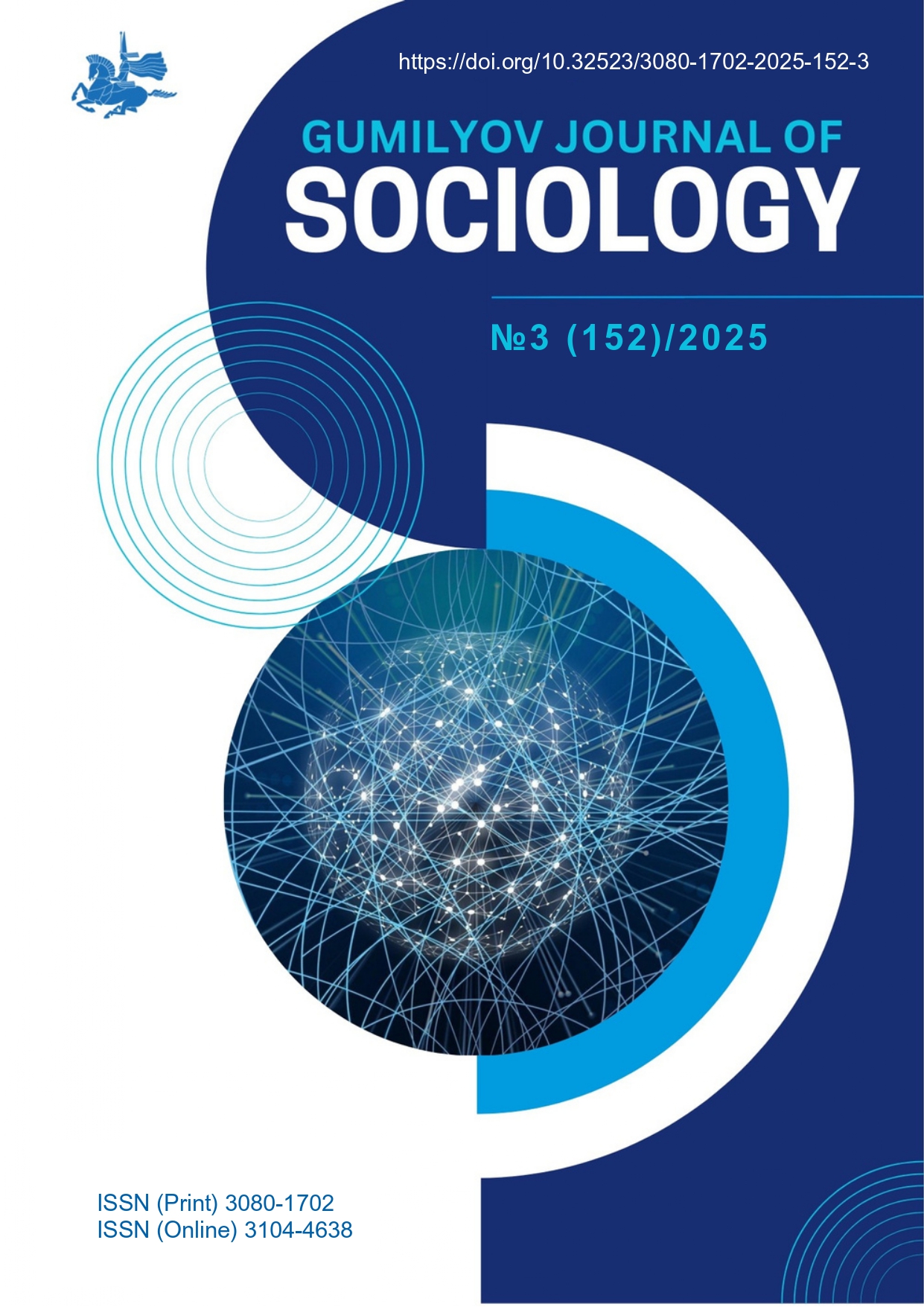MAHALLA TRANSFORMATION: FROM A TRADITIONAL COMMUNITY TO A SOCIAL INSTITUTION
DOI:
https://doi.org/10.32523/3080-1702-2025-152-3-54-63Keywords:
mahalla, community, social institution, transformation, traditions, management, social cohesion, digitalization, social supportAbstract
This article is devoted to the study of the mahalla, which has historically been an important element of social organization in Central Asia and has undergone significant changes. Initially, the mahalla functioned as a traditional community based on kinship, shared values, and mutual assistance. However, over time, it has evolved into a key social institution integrated into the public administration system of modern Uzbekistan. This transformation process was driven by economic, demographic, political, and technological changes that redefined the role and functions of the mahalla in society. One of the key aspects of the mahalla's transformation is its institutionalization in the public administration system. In the past, the mahalla was an informal association where elders played an important role in maintaining order, resolving conflicts, and providing social support. However, after Uzbekistan gained independence, the mahalla became an officially recognized administrative unit responsible for local self-government, the distribution of social assistance, and the strengthening of social cohesion. This process has strengthened its role as a link between the State and the population, allowing for more effective implementation of public policy at the local level. Economic changes have also had an impact on the transformation of the mahalla. The transition from a centralized Soviet economy to a market model led to changes in employment patterns, migration processes, and urbanization. These factors have changed the demographic composition of mahalla communities, as internal and international labor migration has led to the transformation of traditional family structures. Mahallas have expanded their social support mechanisms, especially for vulnerable groups of the population.Downloads
Published
2025-09-30
Issue
Section
Articles
How to Cite
MAHALLA TRANSFORMATION: FROM A TRADITIONAL COMMUNITY TO A SOCIAL INSTITUTION. (2025). Gumilyov Journal of Sociology, 152(3), 54-63. https://doi.org/10.32523/3080-1702-2025-152-3-54-63








